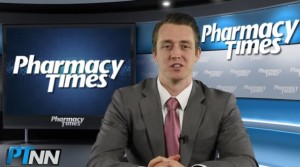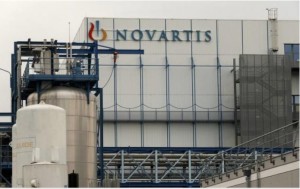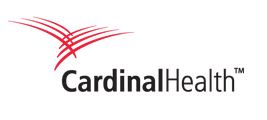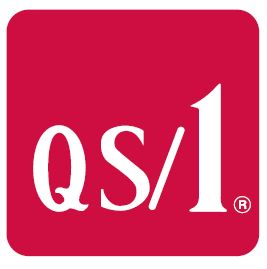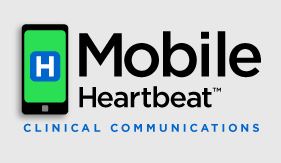- Recipharm commits $45M to counteract fake drugs (fiercecro.com)
Contract drugmaker Recipharm is promising to spend $45 million (€40 million) over the next three years to improve drug traceability in an effort to comply with new regulations and combat the rise of fake medicines...The money will go toward new coding and serialization technologies...an investment that will allow the company to better tag drug products with identifiable markers that can help prevent counterfeiting. The move comes on the heels of the EU Falsified Medicines Directive, which will require new measures in drug manufacturing starting in 2019, according to the company...Recipharm already implements track-and-trace procedures in Asia and is now expanding its efforts in Europe to help clients on the continent prepare for the new standards...
- Theranos Files Plan to CMS for Fixing California Lab Problems (bloomberg.com)
Theranos Inc. filed a plan to U.S. regulators to fix serious deficiencies at the company’s blood-testing lab in Newark, California, as founder Elizabeth Holmes works to regain credibility for her struggling startup...The company submitted the proposed plan of correction...to the Centers for Medicare and Medicaid Services...Theranos also confirmed the filing, though it didn’t release details of the plan...CMS said in late January that Theranos’s violations of federal regulations posed "immediate jeopardy" to patients’ health and safety...Walgreens Boots Alliance Inc. and...Capital BlueCross have said they’re curtailing use of Theranos’s tests while the shortcomings identified by CMS are addressed. Theranos has hired a new lab director and said it’s working quickly to correct other problems, including personnel issues, along with the defects tied to blood testing...
- Pharmacy Week in Review: February 12, 2016 (pharmacytimes.com)
Mike Glaicar, Business Development: Pharmacy Times...(PTNN) This weekly video program provides our readers with an in-depth review of the latest news, product approvals, FDA rulings and more.
- Novartis sets heart-drug price with two insurers based on health outcome (reuters.com)
U.S.-based health insurers Cigna Corp and Aetna Inc have struck deals with Novartis AG for a performance-based price for the Swiss drugmaker's new heart drug, Entresto...The agreements are among the few performance-based deals that have been made public by drugmakers and managed-care companies, which say they have been having more discussions about linking price to health outcomes in order to cut unneeded drug spending...Under the agreement, Cigna said its payments to Novartis will be linked to how well the drug improves the relative health of Cigna customers...Entresto (sacubitril/valsartan) is approved for the treatment of chronic heart failure...Cigna said payments will be based on a reduction in the proportion of customers who are admitted to hospital for heart failure...Aetna...said it signed a value-based agreement with Novartis that is based on the drug replicating results that it achieved during clinical trials. In trials, Entresto cut hospitalizations and the rate of cardiovascular death related to heart failure...Epstein (David Epstein, head of pharmaceuticals, Novartis)...said that under the deals, Novartis had agreed to a base price and a modest rebate, which would fluctuate based on hospitalizations and savings to the plan...
- Genes, bugs and radiation: WHO backs new weapons in Zika fight (reuters.com)Brazil reports more cases of microcephaly under investigation (reuters.com)FDA recommends ban on blood collections from Zika-affected areas (reuters.com)Zika vaccine shows promise in mice, lifting maker Inovio (reuters.com)
Countries battling the Zika virus should consider new ways to curb disease-carrying mosquitoes, including testing the release of genetically modified insects and bacteria that stop their eggs hatching...Given the magnitude of the Zika crisis, WHO encourages affected countries and their partners to boost the use of both old and new approaches to mosquito control as the most immediate line of defence...WHO also highlighted the potential of releasing sterile irradiated male mosquitoes, a technique that has been developed at the United Nations’ International Atomic Energy Agency...Fighting the infection at source by eliminating the Aedes aegypti mosquitoes responsible for transmission is moving up the public health agenda, especially as the same insects also spread dengue, chikungunya and yellow fever...An alternative approach uses Wolbachia bacteria, which do not infect humans but cause the eggs of females that mate with infected males to fail to hatch. Mosquitoes carrying Wolbachia have been shown to reduce mosquitoes' ability to transmit dengue...
- Cardinal Health bullish on medication synchronization (chaindrugreview.com)
Cardinal Health Inc. said its new medication synchronization program...offers manifold benefits for community pharmacies in terms of patient care and efficiency...MedSync Advantage enables pharmacists to coordinate a patient’s prescriptions to be picked up on the same day each month…the program not only simplifies the process for patients and caregivers who must fill multiple prescriptions, but it also improves patient medication adherence by helping to ensure they fill all scripts each month...the number of prescriptions that a patient fills each month sharpens inventory management for the pharmacy and opens up more time for the pharmacy staff to focus on interacting with patients…We believe medication synchronization is a core competency for medication therapy management expansion in the pharmacy, and we want to prepare our pharmacies to move toward a value-based pharmacy model for payment in the future...It’s a win for the patient, and it’s a win for us because it evens out our workflow and helps us operate more efficiently...The most visible thing you get from medication synchronization is your time back…
- QS/1 receives PA-DSS data security certification (drugstorenews.com)
Healthcare software solutions company QS/1 this week announced that it had received a certification for the data security of its point-of-sale system. The company was certified under version 3.1 of the Payment Data Security Standard...Companies that receive PA-DSS certification have to create an application that doesn’t store such information as a credit card’s magnetic stripe, CVV or PIN. QS/1’s certification covers processing new EMV chip cards as well as end-to-end encryption of credit card data and tokenizing card data for customers who store it for recurring charges...Too many times we heard about retailers dealing with massive security breaches that compromise credit card data...Taking the steps to certify on the new 3.1 standard puts QS/1’s point-of-sale system at the forefront of credit card security.
- Drug development crisis linked to bad technology choices, experts argue (worldpharmanews.com)When Quality Beats Quantity: Decision Theory, Drug Discovery, and the Reproducibility Crisis (journals.plos.org)
The search for new medicines is becoming unsustainably expensive despite huge technological advances because researchers are using the wrong methods, experts say. They say drug discovery should focus on 'validity' - how well the results of experiments predict results in sick people. Instead, it has focused on methods that are easy to industrialize or methods that are academically fashionable...Jack Scannell...and...Jim Bosley approach drug discovery using mathematical tools that are used by economists to study decision making. They show that the chance of discovering an effective drug is surprisingly sensitive to the validity of the experimental methods. Small changes in validity can have a bigger effect than running 10 or even 100 times more experiments...There is a nasty puzzle at the heart of modern biomedical research. On one hand, the technologies that people think are important have become hundreds, thousands, or even billions of times cheaper. On the other hand, it costs nearly 100 times more to bring a drug to market today than it did in 1950. New drugs can be very expensive, yet the industry is closing labs and firing scientists. Our work goes some way towards explaining the puzzle. Governments, companies, and charities should focus on identifying and funding predictive methods, even if they don't match current scientific fashion...
- 7 Drug Shortage Findings Health-System Pharmacists Should Know (pharmacytimes.com)
Health-system pharmacists can play a critical role in managing drug shortages to prevent medical errors and adverse events...[Pharmacists] can often prevent shortages from impacting their institution by proactively managing inventory...When a shortage situation impacts hospital inventory, pharmacists should inform providers early...Pharmacists can also develop protocols for emergency department staff on what to do if a drug is not available. These protocols should include information about the best alternative medication, dosing recommendations, proper administration of the drug, and contraindications...Pharmacists can also take the following steps:
- To prevent errors, place specific labeling on a medication if a different concentration than what is normally stocked is being used.
- Help develop protocols for the ethical distribution of medications on shortage.
- Minimize waste of medications while compounding.
- Assist emergency medical services providers and directors with out-of-hospital protocols during shortages.
- Monitor and report adverse outcomes and medication errors.
...researchers examined data from the University of Utah Drug Information Service...Here are 7 things pharmacists should know about these findings:
- Of the 1789 drug shortages, about one-third (610) were within the scope of emergency medicine practice.
- From January 2008 to March 2014, emergency medicine drug shortages rose by 435%, from 23 to 123.
- The reason behind shortages remains unknown for around half of the 1789 cases.
- Infectious disease medications were hit hardest.
- Around 40% of drug shortages affect emergency care, according to a report from the Health and Human Services’ Emergency Care Coordination Center.
- The median shortage time for emergency medicine drugs was 9 months.
- The most common reasons for a drug shortage were related to manufacturing delays or problems.
- Yale-New Haven Hospital picks smartphone app to streamline clinical staff communications (healthcareitnews.com)
Hospital says MH-CURE offers care teams secure, access to all clinical communications, pertinent patient information and lab data...Patient care teams at Yale-New Haven Hospital, looking for a faster, more efficient and more secure way to communicate with each other in the emergency room, have adopted smartphone applications to speed up workflows. Eventually, the hospital bucked its traditional methods, which included a public address system and a VOIP wireless phone system, turned to MH-CURE – for Clinical Urgent Response – a smartphone application from Waltham, Massachusetts-based Mobile Heartbeat...MH-CURE offers care teams secure, single smartphone access to all clinical communications, pertinent patient information and lab data. Care team members have a choice of using their own smartphone or sharing hospital-supplied devices. It consolidates clinical communications, including alarms and notifications, pertinent patient information, lab data, texting, voice and photography...Results revealed that the amount of time required for clinicians to locate and transmit information to one another was greatly reduced, allowing staff to spend more time with patients and thus provide better patient care...



